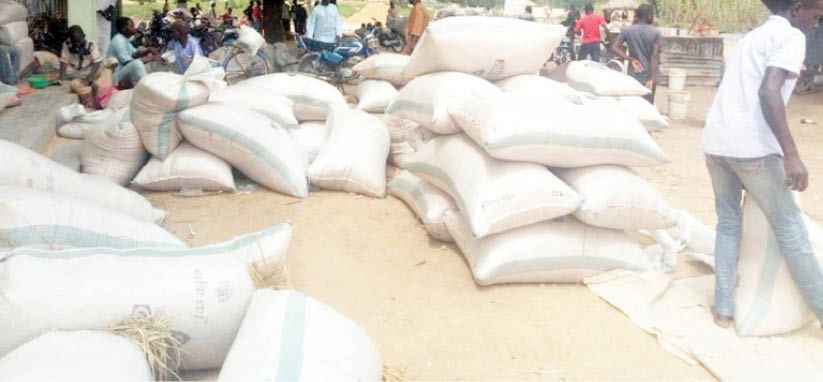Rice millers in Benue State are closing shops as the increasing cost of paddy now makes them operate at a loss.
Apart from the high cost of paddy, the millers are also worried about the hike in petroleum products, which, according to them, contributes to the breaking down of their businesses.
Kwara farmers lament low rainfall
Do something about the economy now
An entrepreneur, Ichor Michael Tersoo, who runs a mill at Wadata in Makurdi, said his business was put on hold because he was operating at a loss.
“Business is not good at all. The price of gas is not helping matters. We are milling at N800 per litre of gas and diesel is N800 per litre, so it has affected our business. We were buying at N190 per litre, but it is now N800.
“For now, I am not buying paddy because it would be at a loss. Before, if I bought paddy I usually got three and half tins as profit, but now, I can’t even get a half tin. If you are buying paddy now without being careful, you are buying at a loss. So I have stopped buying paddy for now until August/September when new rice will start coming; then I can be sure of getting it at a better price.
“Before now, I usually bought my paddy from Agatu people in Nasarawa State through River Benue and the Naka area in Gwer West, as well as Gbajimba market in Guma Local Government Area of Benue State. We have two sizes of rice paddy bags.
“We buy size 28 at N28,000, but when you transport it to Makurdi to our mill it would rise to N30,000, and if it is size 30, by the time it gets to the mill it would be N32,000, plus transportation,” he explained.
Tersoo, a processor, was worried that the activities of big companies in the rice industry in the state was also affecting the small-scale sector because they usually besieged the rural areas, often in December/January to mop up paddy from farmers needing money at the time, and by April downwards, the commodity becomes scare, with prices skyrocketing.
Similarly, another rice miller in Wadata who simply gave his name as Mohammed, has shut down business waiting for when things would hopefully improve for him to continue his work.
Mohammed said he took the decision to stop milling rice for the time being because he was running at a loss.
Other millers who spoke with our correspondent wanted the government to step in to address emerging threats, claiming that the development was affecting the entire rice value chain in the state.

 Join Daily Trust WhatsApp Community For Quick Access To News and Happenings Around You.
Join Daily Trust WhatsApp Community For Quick Access To News and Happenings Around You.


